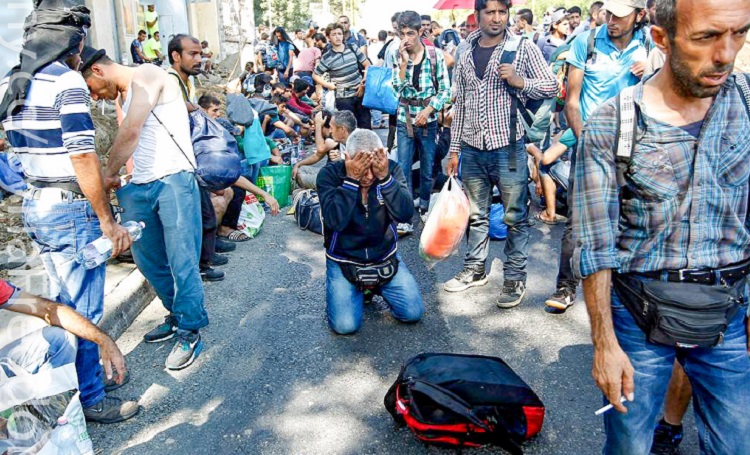
Photo credit: Flickr
This past Saturday there was a Democratic presidential debate. Only 8.5 million Americans tuned in to watch because it was SATURDAY NIGHT. Thanks to Debbie Wasserman Schultz and the DNC, too many voters missed out on a very strong debate.
One of the important topics that arose was how the climate crisis affects global terrorism.
Bernie Sanders mentioned the terrorist attacks in Paris as a call for action to address climate change.
“In fact, climate change is directly related to the growth of terrorism,” Bernie Sanders said during Saturday’s debate. “And if we do not get our act together and listen to what the scientists say, you’re going to see countries all over the world — this is what the CIA says — they’re going to be struggling over limited amounts of water, limited amounts of land to grow their crops. And you’re going to see all kinds of international conflict.”
Climate and science deniers ridiculed Sanders, but scientists and national security experts agree that the drastic changes we are seeing in climate help to create a world where terrorism can and will thrive.
U.S. military officials refer to the climate crisis as a “threat multiplier.” A 2014 Department of Defense report determined that climate change is a root cause of government instability which leads to widespread migration, damages infrastructure and leads to the spread of disease. “These gaps in governance can create an avenue for extremist ideologies and conditions that foster terrorism,” the report says.
When you look at what’s happening in Syria and apply the information in the government report, you see that there are clear parallels.
The severe drought in Syria has created instability by threatening the food supply and causing farmers, who can no longer make a living on parched land, to flood cities unprepared for the influx of the additional people. The Syrian government has been struggling to hold on to power across the country in the face of militant groups, resulting in millions of Syrians fleeing from their homeland and causing a refugee crisis that is worsening daily.
Secretary of State John Kerry said in a speech last month, “I’m not telling you that the crisis in Syria was caused by climate change, but the devastating drought clearly made a bad situation a lot worse.”
Additionally, a report published in the academic journal PNAS [Proceedings of the National Academy of Sciences] in 2015 makes the case that the change in climate has helped create instability and fighting in Syria. Moreover, the Islamic State, commonly known as ISIS, arose in the country in large part due to that instability. And now, ISIS has claimed responsibility for a number of recent terrorist attacks, including this week’s assault in Paris and the downing of a Russian jet over Egypt’s Sinai Peninsula.
For more than three years, leading security and climate experts — as well as Syrians — have tied climate change to the Syrian war. Retired Navy Rear Admiral David Titley said it identifies “a pretty convincing climate fingerprint” for the Syrian drought.
Titley is a meteorologist who led the U.S. Navy’s Task Force on Climate Change when he was at the Pentagon, and he added, “You can draw a very credible climate connection to this disaster we call ISIS right now.”
The study, Climate change in the Fertile Crescent and implications of the recent Syrian drought, found that global warming made Syria’s 2006 to 2010 drought two to three times more likely
“While we’re not saying the drought caused the war,” lead author Colin Kelley explained. “We are saying that it certainly contributed to other factors — agricultural collapse and mass migration among them — that caused the uprising.”
Like Kimberley A. Johnson on Facebook HERE or follow her HERE
Special thanks to Matthew Crowley. To learn more visit his profile here.

You must be logged in to post a comment Login